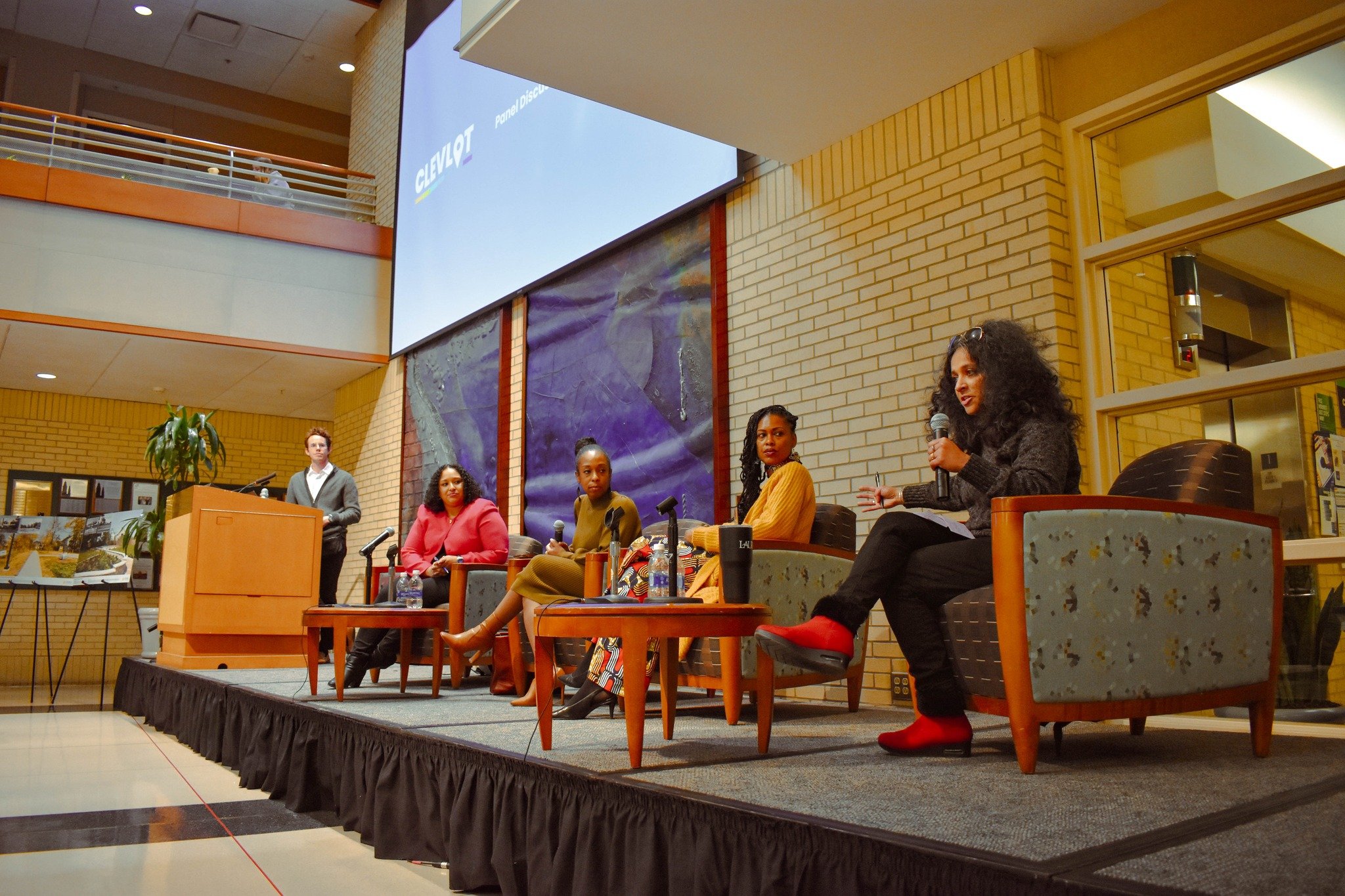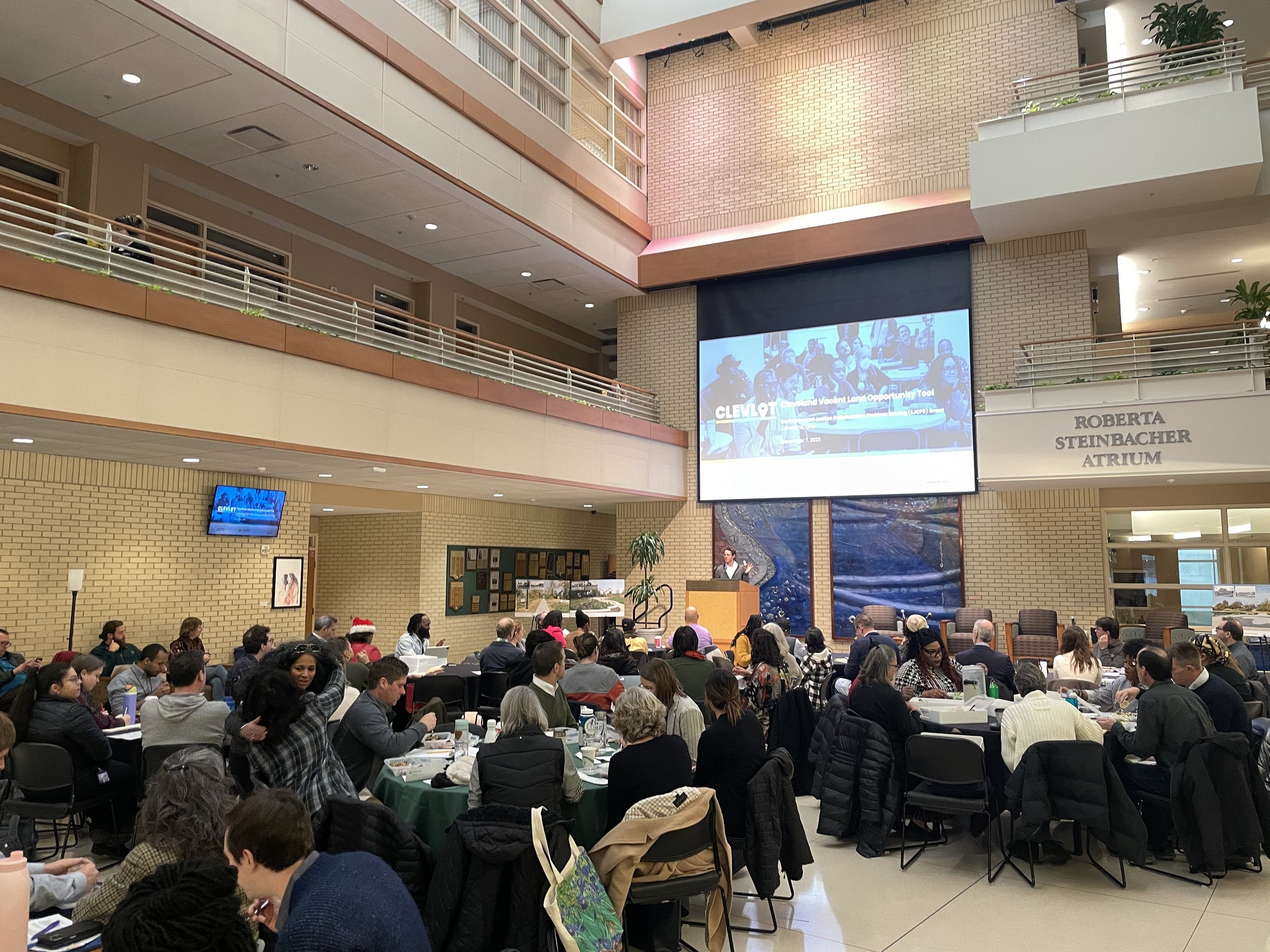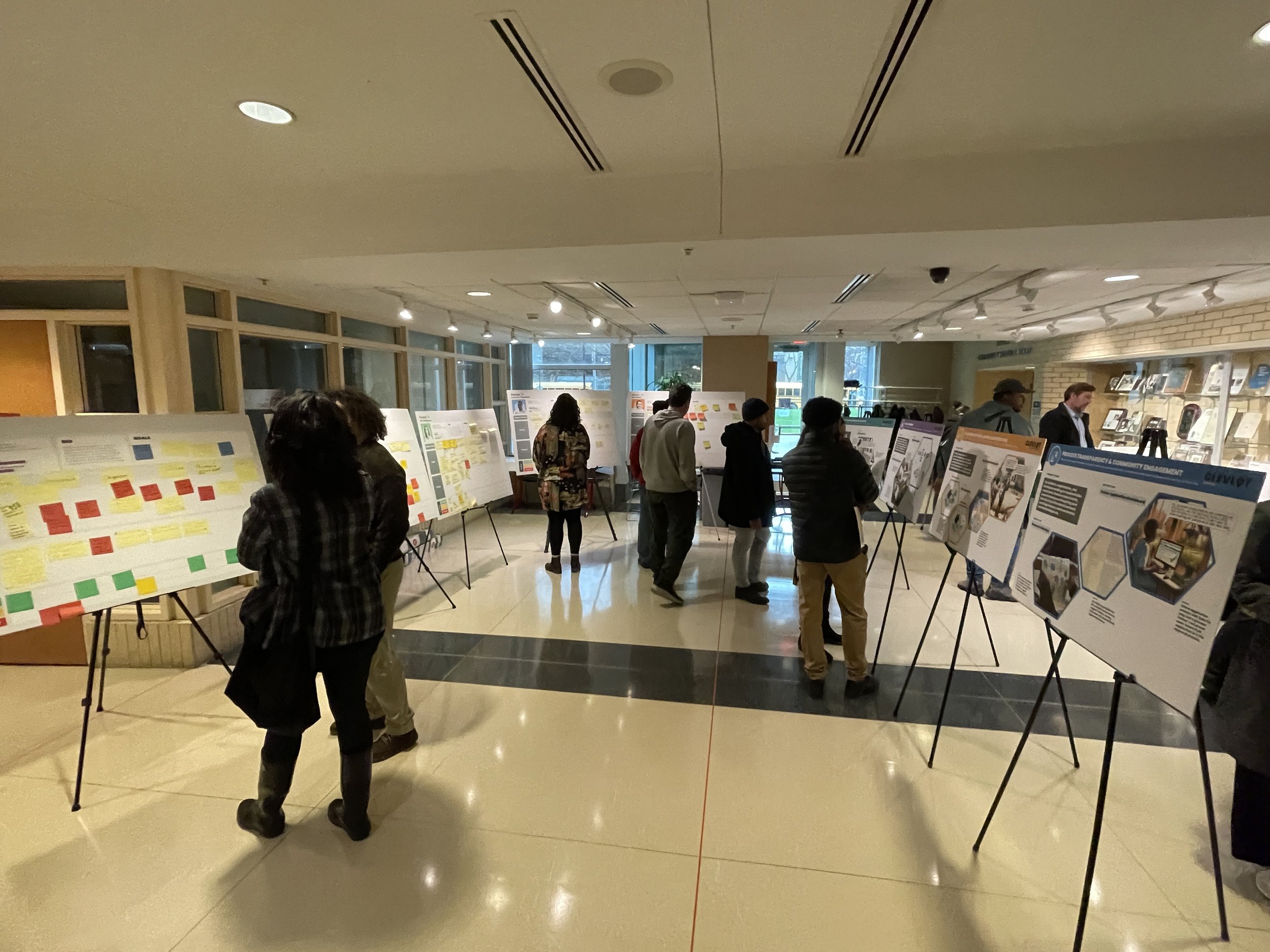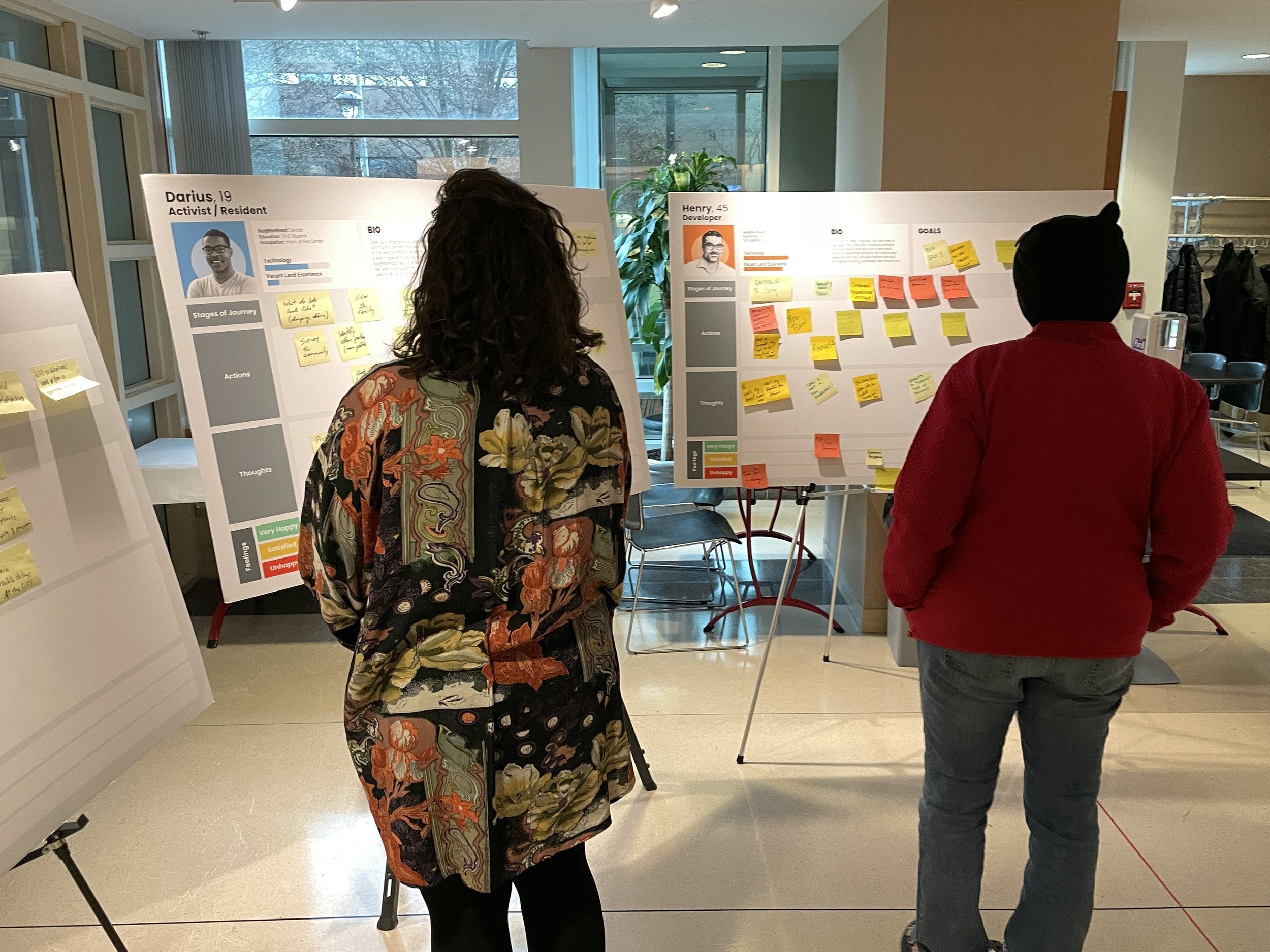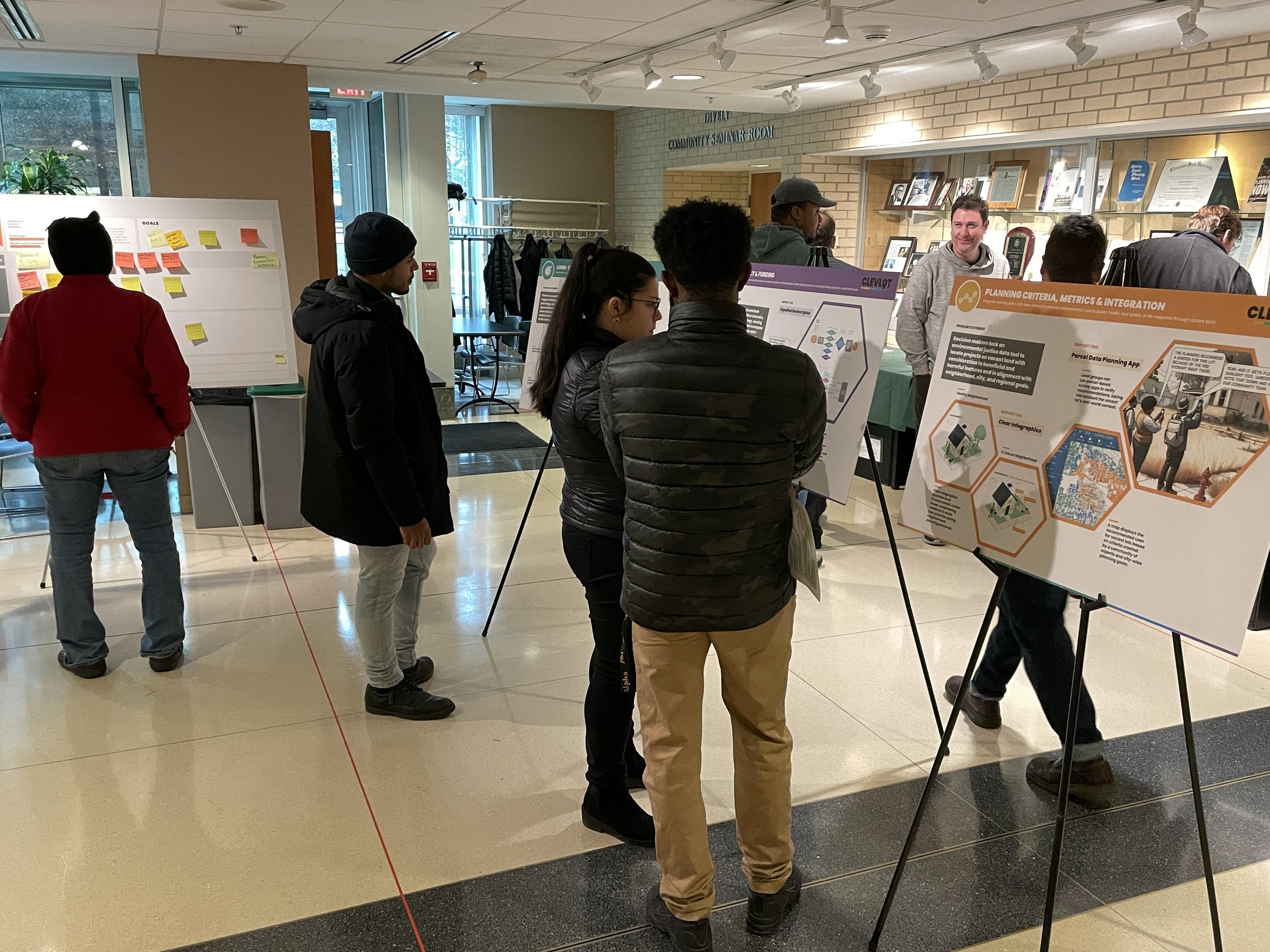Thanks to all who joined us for a full house at Cleveland State University for a public forum unveiling the initial findings of the Cleveland Vacant Land Opportunity Tool (CLEVLOT). The two-year CLEVLOT study is funded by the U.S. Environmental Protection Agency and focuses on identifying and alleviating common obstacles encountered in the process of repurposing vacant urban land in Cleveland. (A video recording and slides from the event are included below.)
CSU Levin College Public Forum
Thursday, December 7th, 2023
11:30am - 1:30pm
The forum began with opening remarks from Western Reserve Land Conservancy’s Matt Zone, Senior Vice President and Director of Thriving Communities, followed by an overview of the CLEVLOT process presented by Tim Dehm, WRLC’s Planning and Design Specialist.
Following the CLEVLOT overview, Alyssa Hernandez from The City of Cleveland presented updates to the Cleveland Land Bank process. The forum also included a panel discussion with additional participants, facilitated by Tim Dehm. The panelists were:
Marka Fields, Assistant Director of the Cleveland City Planning Commission, brings over 20 years of experience in planning and community development. She contributed to Cleveland’s Comprehensive Plan and focuses on health, equity, and sustainability in urban planning.
Alyssa Hernandez, Director of Community Development in Cleveland, oversees Cleveland Land Bank, HUD and capital funds for homelessness, housing, and lead abatement.
Antunesia Harris, a Cleveland native focused on using art, culture, civics, and volunteerism to make a positive impact on residents in her neighborhood.
Divya Sridhar, Manager of Climate Resiliency and Sustainability at Cleveland Neighborhood Progress, implements climate resilience strategies in Cleveland. She collaborates across sectors, is actively involved in several environmental groups, and applies her architectural training and systems thinking to her work.
View event video recording:
View presentation slides below:
The CLEVLOT initiative brought together a diverse array of stakeholders – ranging from city officials and land use experts to local residents and community leaders. The focus was on identifying and alleviating common obstacles encountered in the process of repurposing vacant urban land.
Through a series of workshops and engagement sessions, we gathered insights and experiences from stakeholders. These discussions revealed the multifaceted nature of the challenges faced in vacant land reuse, spanning issues such as long-term stewardship, planning criteria, community engagement, policy-making, and funding. To address these challenges, stakeholders formed specialized working groups, each dedicated to a particular aspect of the vacant land reuse process. These groups were instrumental in crafting problem statements and developing prototype solutions, thereby deepening the collective understanding of the issues at hand.
Western Reserve Land Conservancy staff worked closely with key partners to turn these prototypes into practical, user-friendly tools. These tools are designed to enhance transparency, accessibility, and equity in the vacant land reuse process. Furthermore, the Land Conservancy has created strong partnerships with organizations poised to sustain and steward these tools in the long run.
CLEVLOT was a collaborative effort between Western Reserve Land Conservancy, City of Cleveland - City Hall, Cleveland Neighborhood Progress, LAND studio, Burten, Bell, Carr Development, Inc., Union Miles Development Corporation, Cleveland State University, Cuyahoga Land Bank, Trust for Public Land, and over 30 organizations, initiatives, and individuals.
Read more about the CLEVLOT Public Forum through recent news articles:
Cleveland.com Article by Steven Litt
AXIOS Cleveland Article by Sam Allard

